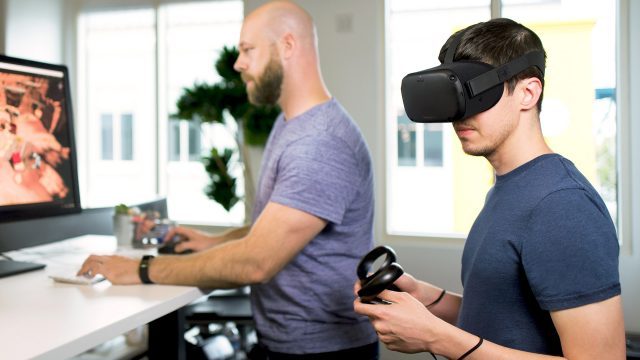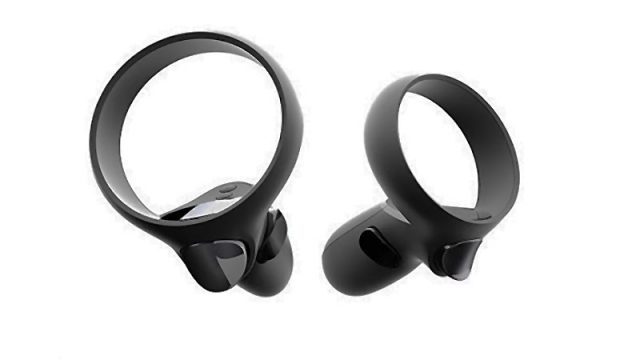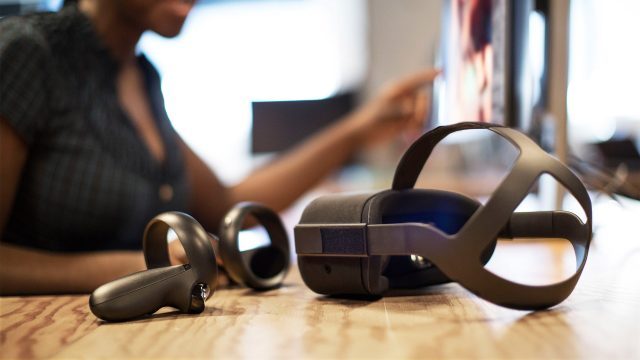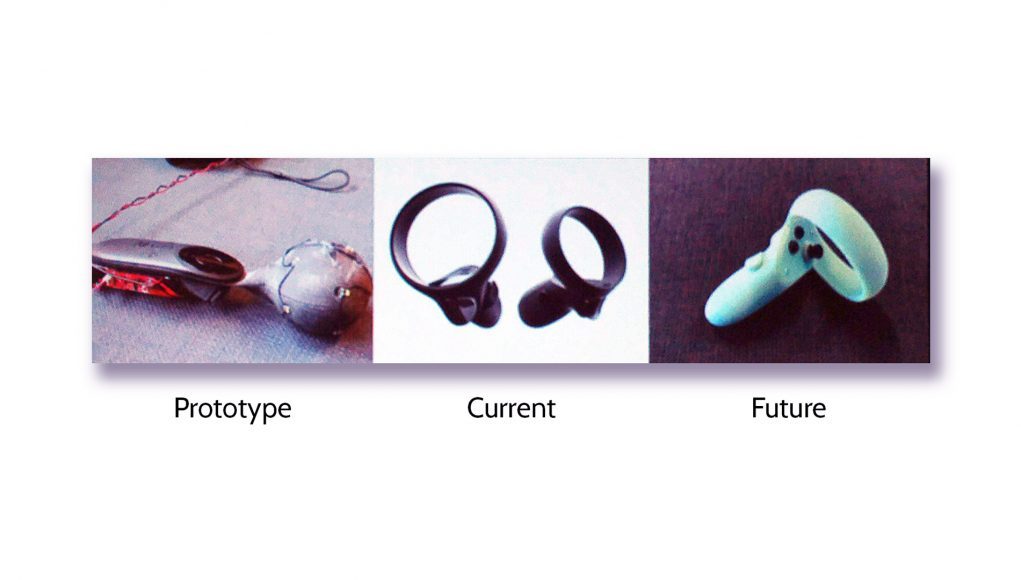At GDC 2018 this week, Oculus revealed some additional details surrounding their high-end standalone VR headset prototype, Santa Cruz. Among those details, the company plans to replace the current controllers’ trackpads with buttons and sticks, much like the Rift.
Santa Cruz has been mostly impressive, but it did seem like an odd choice that the company chose to use a trackpad on the controllers (which are very similar the the Touch controllers), especially considering that many people seem to prefer the button and stick layout of Touch over trackpad VR controllers like the Vive’s wands and the Gear VR controller.
During a session at GDC 2018, Oculus said that one consistent piece of developer feedback that they heard from Santa Cruz demos was that developers wanted standard input between Rift and Santa Cruz, ostensibly so that it’s easier to develop games that are cross-compatible with both headsets.
 The company showed a picture of an early prototype of the Santa Cruz controller which appeared to consist of an Oculus Remote with a tracking ball attached to the top. The next image showed the later trackpad prototype, which looks like a Touch controller but with the tracking ring inverted. And finally, an image showing what appears to be the latest prototype, a similar looking inverted Touch controller but this time with buttons and sticks.
The company showed a picture of an early prototype of the Santa Cruz controller which appeared to consist of an Oculus Remote with a tracking ball attached to the top. The next image showed the later trackpad prototype, which looks like a Touch controller but with the tracking ring inverted. And finally, an image showing what appears to be the latest prototype, a similar looking inverted Touch controller but this time with buttons and sticks.

Oculus confirmed they are showing off the Santa Cruz prototype to developers behind closed doors during GDC this week; here’s our hands-on thoughts with the prototype from last year.
While the company isn’t ready to divulge the full details of the headset, like what it might look like when it’s fully productized, or what it will cost, “pretty soon you won’t be able to get us to shut up about this device,” Chris Pruet, Oculus’ Head of Development Engineering, teased.
 “If you were to pull it apart and look at its components it would look a little like Oculus Go, but that description of it sells it short. It’s actually a completely different type of device,” he said on stage. “We took many of our ideas from Oculus Go and unlocked them on Santa Cruz.”
“If you were to pull it apart and look at its components it would look a little like Oculus Go, but that description of it sells it short. It’s actually a completely different type of device,” he said on stage. “We took many of our ideas from Oculus Go and unlocked them on Santa Cruz.”
Chris said the headset was designed for lots of heat dissipation and allows the hardware to run at clock rates than any similar device he’s seen. The implication seemed to be that Santa Cruz is closer to a standalone version of the Rift than an upgraded version of the Go. But considering Santa Cruz is running (as far as we know) mobile hardware, it’ll be up to users to decide where it really falls in terms of graphics and performance between Go and Rift.







